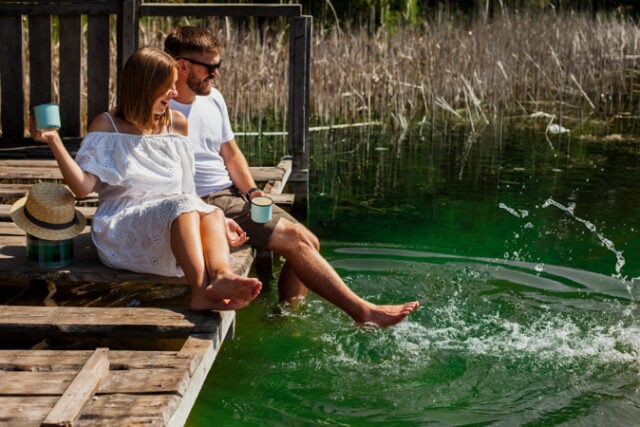
Traveling has a way of changing us—not just with memories but with new ways of seeing the world. Whether it’s through a brief moment, a conversation with someone from another culture, or a chance event that turns into a story, the beauty of traveling lies in the layers we carry back. It’s not always about the grand destinations or the most photographed spots.
What stays with us are the smells, sounds, and tastes that surprise us, the emotions that catch us off guard, and the people met along the way. In that sense, James Simon Producer says that travel becomes less about escape and more about return—a return to ourselves, changed, more curious, and more connected to the world around us.
What Makes a Travel Experience Last
Some travel moments stay in the mind long after the return flight. It’s not always the landmarks or the souvenirs that stay with us, but the emotions tied to a place, a person, or a fleeting moment. These experiences often carry an unexpected weight, becoming reference points in our memory.
A walk through a quiet alley at dusk, a shared smile with a stranger, or standing on a beach during sunrise can leave impressions as enduring as any photo. These moments resonate because they connect us to a place in a personal way, often beyond words. They become part of the stories we tell ourselves, stitched into our inner map of places that mattered.
How the Senses Shape Memories
The scent of spices drifting through a street market, the way a local song echoes down a narrow alley, or the taste of something unfamiliar yet comforting—all of these sensory threads weave into the fabric of memory.
During a visit to a coastal village, hearing the distant rhythm of waves at night can become more memorable than any guided tour. These sensory imprints work quietly, anchoring us to a moment without needing explanation. A sudden breeze carrying the aroma of jasmine or the crackle of a fire nearby can stir something deeply nostalgic.
Sometimes, it’s the smallest things—the clink of glasses over a shared meal, the texture of cobblestones beneath your shoes, or the golden hue of late afternoon light—that linger in your memory. They become emotional bookmarks, playing back like a song you didn’t realize you knew by heart. These cues don’t just remind you of the place—they remind you of who you were in that moment.
Cultural Engagement and Local Connection
A trip becomes transformative when it moves beyond observation into participation. Joining a family for a home-cooked meal or helping set up for a village celebration can create bonds that transcend language.
A traveler who learns local greetings or attends a neighborhood festival often walks away with more than just photos. That brief connection—laughing with someone over a shared joke or learning a dance step—can feel more valuable than anything bought in a shop. These simple exchanges can carry a warmth that lasts much longer than a souvenir.
It’s in these exchanges that experiences gain richness. Being welcomed into someone’s daily life, even briefly, creates a sense of belonging that stays with you long after the journey ends. These are the moments that remind you the world isn’t as vast or unfamiliar as it sometimes seems.
Embracing the Unexpected
Some of the most vivid memories are born from moments that weren’t part of any plan. A missed train might lead to an unexpected conversation with a local vendor, or a sudden rainstorm could result in sheltering under a shop awning with strangers who feel like friends by the time the clouds clear. The best stories often start with a detour.
It’s often the detours, the delays, and the surprises that etch themselves into memory. A wrong turn down an unfamiliar street might reveal a hidden café where you end up spending hours, or a minor mishap could open the door to an adventure you’d never anticipated. These moments can become the heart of a travel story, the part you tell first when someone asks how your trip went.
When things don’t go as expected, perspective shifts. These unscripted moments invite spontaneity, and with it, a deeper connection to the place and your own sense of presence within it. Letting go of control allows the journey to unfold in its own rhythm, often revealing more than you planned to find.
When Travel Changes You
Some journeys stretch beyond scenery and snapshots, reshaping how you see the world—and yourself. Witnessing daily life in a place vastly different from your own can stir a quiet reckoning, a reminder of how many ways there are to live. It invites humility and prompts new questions about what truly matters.
Spending time in a community where values or routines differ from yours can plant seeds of reflection. Whether it’s observing resilience in a small mountain village or participating in volunteer work abroad, these experiences often lead to growth that lingers. Such encounters can reframe your views on comfort, happiness, and success.
Sometimes it’s subtle, like a shift in what you value or a new patience with the unfamiliar. Other times it sparks a more significant change—choices made differently, priorities realigned, or a deeper appreciation for the present.
Ways to Make Your Trip More Meaningful
Letting go of rigid itineraries creates space for connection and discovery, whether that means striking up a conversation with a local artisan or taking time to notice the details of everyday life around you. There’s value in wandering without a goal, in allowing the day to unfold without an agenda.
Writing briefly at the end of each day or even sketching a moment that stood out helps make the experience your own. These small habits allow you to carry more than just images back home—they help you remember how a place made you feel. Even a quick note about a conversation or a flavor can preserve something vivid.
Disclaimer
The information contained in South Florida Reporter is for general information purposes only.
The South Florida Reporter assumes no responsibility for errors or omissions in the contents of the Service.
In no event shall the South Florida Reporter be liable for any special, direct, indirect, consequential, or incidental damages or any damages whatsoever, whether in an action of contract, negligence or other tort, arising out of or in connection with the use of the Service or the contents of the Service.
The Company reserves the right to make additions, deletions, or modifications to the contents of the Service at any time without prior notice.
The Company does not warrant that the Service is free of viruses or other harmful components












